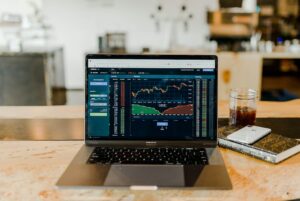Forex trading has become increasingly popular in the Philippines in recent years. With its potential to generate significant profits and the accessibility provided by online trading platforms, more and more Filipinos are drawn to the forex market. If you are a beginner, this article will guide you through the essential steps to start forex trading in the Philippines.
1. Learn the Basics:
Before diving into forex trading, it is crucial to understand the basics of the foreign exchange market. Forex trading involves buying and selling currency pairs with the goal of profiting from the fluctuations in their exchange rates. It is essential to familiarize yourself with key concepts such as currency pairs, pip values, leverage, and trading strategies. Numerous online resources, tutorials, and courses are available to help you gain a solid foundation in forex trading.
2. Choose a Reliable Forex Broker:
Selecting a reputable forex broker is vital for a safe and successful trading experience. Look for brokers regulated by respected financial authorities such as the Securities and Exchange Commission (SEC) in the Philippines or other international regulatory bodies like the Financial Conduct Authority (FCA) in the UK. Ensure that the broker offers a user-friendly trading platform, competitive spreads, and a wide range of currency pairs to trade.
3. Open a Trading Account:
Once you have chosen a broker, the next step is to open a trading account. Most brokers offer different types of accounts catering to various trading levels and requirements. As a beginner, it is recommended to start with a demo account. A demo account allows you to practice trading with virtual money, enabling you to understand the platform’s features, test your strategies, and gain confidence without risking real funds.
4. Develop a Trading Plan:
Successful forex traders have a well-defined trading plan. A trading plan outlines your goals, risk tolerance, preferred trading strategies, and money management rules. It is important to establish clear entry and exit points for each trade, as well as risk-reward ratios. Stick to your plan and avoid making impulsive decisions based on emotions or short-term market fluctuations.
5. Start with a Small Investment:
As a beginner, it is advisable to start with a small capital investment. Forex trading involves risks, and it is essential to only risk what you can afford to lose. Many brokers offer low minimum deposit requirements, allowing you to start with as little as $100. Starting small will help you gain experience and confidence before gradually increasing your investment.
6. Practice Risk Management:
Proper risk management is crucial in forex trading. Always set stop-loss orders to limit potential losses and take-profit orders to secure profits. Use leverage wisely, as it can amplify both gains and losses. It is recommended to start with low leverage ratios until you have a thorough understanding of its implications. Additionally, avoid risking a significant portion of your account balance on a single trade. Diversify your portfolio and spread your risk across different currency pairs.
7. Stay Informed:
The forex market is highly influenced by economic and political events worldwide. Stay informed about economic indicators, central bank decisions, and geopolitical developments that can impact currency prices. Economic calendars and financial news websites can be valuable resources for staying updated with market-moving events. Regularly analyze charts, use technical indicators, and stay connected with experienced traders to enhance your trading skills.
8. Learn from Mistakes:
Forex trading is a continuous learning process, and mistakes are inevitable, especially for beginners. Treat losses as learning opportunities and analyze your trades to identify potential areas for improvement. Keep a trading journal to record your trades, including reasons for entering and exiting positions, and evaluate your performance regularly. Learn from your mistakes and adjust your strategies accordingly.
9. Utilize Educational Resources:
To enhance your forex trading skills, take advantage of various educational resources available online. Many brokers offer webinars, tutorials, and educational materials to help beginners understand the market. Additionally, there are numerous forex forums and communities where you can interact with experienced traders, share knowledge, and gain insights into effective trading strategies.
10. Practice Patience and Discipline:
Last but not least, patience and discipline are key virtues in forex trading. Avoid chasing quick profits and be aware that consistent profitability takes time and effort. Stick to your trading plan, avoid impulsive decisions, and do not let emotions dictate your trading actions. Forex trading requires a calm and rational mindset to make informed decisions based on market analysis.
In conclusion, starting forex trading in the Philippines can be an exciting and potentially lucrative venture. By learning the basics, choosing a reliable broker, practicing risk management, staying informed, and maintaining discipline, you can build a solid foundation for your forex trading journey. Remember that success in trading comes with experience, continuous learning, and a disciplined approach to the market.






